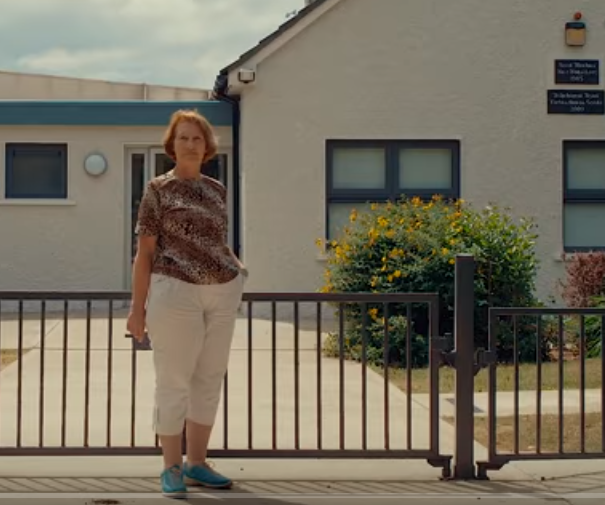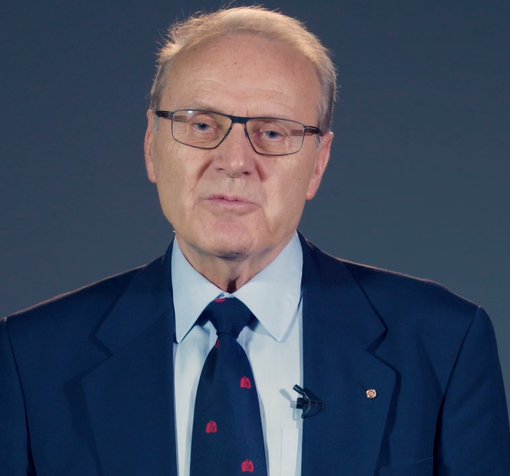Respiratory patients are widely considered a risk group for Covid-19. Yet how do they experience the pandemic? EFA has spoken with patients from six European countries, asking them for an insight in what living with asthma and COPD in times of Covid-19 is like.
“In Sweden, the situation is not extremely strict” says Pontus Odemyr, 23 years old from Örnsköldsvik, Sweden. He lives with severe asthma since he was a child. The Swedish government’s approach for managing Covid-19 is achieving herd immunity, Pontus explains. It is a way of indirect protection from the disease through a previous infection by yourself or others around you.
Yet, this approach can be particularly dangerous for severe asthma patients like Pontus. “I am quite precautious. I regularly wash my hands, avoid big crowds and put myself into social distancing”, he says.
“I am pretty sure to be alright”
Being cautious, yet Pontus never felt vulnerable with regards to Covid-19. “I am not afraid of it. I am young and have a functioning body”. In fact, living with severe asthma has never prevented Pontus becoming a sporty young man, doing and teaching Parkour. Neither do the Coronavirus restrictions, “We can train, but we cannot use equipment or assist the children anymore.”
Pontus is working in a grocery store. Social distancing, therefore, is a rather difficult exercise to carry out. “I like to talk to my customers, but for the moment, there is not much interaction”, he regrets. “At the cashier, we are sitting behind a glass barrier, so that people don’t get into direct contact with us. We also wear gloves and put signs that people should not come in when feeling sick.”
As particularly elderly people above 65 years of age constitute a high risk group for Covid-19, in Örnsköldsvik they offer a special service for customers: elderly people get their bags packed with groceries beforehand and can pick it up without having to put themselves at risk.
Taking care of the elderly is also important for the community in Wexford, Ireland. “Shops now have dedicated times for people over 65”, says Breda Flood, a 68 year old mother and grandmother, who lives with severe asthma, bronchiectasis and a mild form of Alpha-1. “People can go there between 7 and 9 am and it is very quiet. I go once a week and there are more shop workers than customers at that time.”
“I try to look on the positive”
Breda is not too unhappy with the situation. “I think I am very lucky, I live in a rural area and can drive my car to get supplies. But I am staying away from everywhere that could be a risk.” When working as a primary school teacher and principal, Breda would have always asked her pupils to tell a good tale. Being retired, now she still follows this rule: “If you pay too much attention to the news, it can be a burden,” she says. “I try to look on the positive.”
Two weeks ago her general practitioner phoned just to ask whether everything was all right or if she had any questions. “This was really going the extra mile”, she delightedly tells, “taking the time and checking in with patients.”
Every day, Breda goes for a walk in the area around her house. If the weather is bad, she would walk indoors. Yet not having contact to family and friends is difficult. “The two things I miss most are my family and my swimming. I used to go to a swimming pool in a hotel close to my place, but for the moment I cannot go there. All hotels and leisure centres are closed.”
That Coronavirus has a big impact on hotels and tourism, can be felt also in Santander, Spain, where Maria De Los Angeles Castillo Perez works as an employee in the tourism sector, preparing packages for tourists visiting Cuba.
The 56-year-old lives with asthma. “I am not scared or anxious” she says, “but I have to be careful. In case that the virus will not be eliminated, it will affect my life also in the future as I will have to be more careful than I used to be.”
From the many years of personal experience with the disease, Maria knows that she needs to avoid getting infected. Should she happen to develop any symptoms, she would immediately ask for medical assistance. “My family is rather worried and asked me to stay at home”, Maria says. “They do anything to avoid that I would need to go out.”
“I am not going out for anything”
During the Coronavirus pandemic, support from friends, family or helpful neighbours is indeed a big relief for people belonging to a risk group. Yet having a helping hand sometimes is even essential. For Karen van de Casteele, the risk of getting infected is too high. “I am not going out for anything”, says the 37-year-old from Ghent, Belgium who lives with severe and allergic asthma, and Addison’s disease. “My parents do the shopping for me; they bring groceries and then we talk a bit from the window”.
Due to her diseases, Karen cannot work, yet she doesn’t have troubles keeping herself busy. “I am painting a lot, but I start to miss going to the park and seeing my family.” Two weeks after lock-down, Karen had birthday. “I got a lot of phone calls and it took me two days to respond to all the messages”, yet social habits are hard to break, she adds.
Once a month, Karen needs to go to the hospital to get an injection. But she didn’t get any advice on what to do when going there, “I was a bit lost there with my gloves and my mask”, she says. “I would have liked to be better prepared.”
“There is no support for patients to recuperate the loss of income”
Speaking with people from all around Europe, it seems however, that actually preparing for the Covid-19 pandemic and the lock-down measures, is a difficult task. Christina Sourla from Greece, was affected by Coronavirus outbreak twofold: being an asthma patient but also working as a physiotherapist.
Nevertheless, the 29-year-old living in Athens remains calm and optimistic. “My family is quite anxious about the virus, but I never felt vulnerable or thought that I have to be particularly careful when going out”, she says, adding that most of her friends, would not even know that she is in danger.
While trying to keep social distance and avoid being infected, working as a physiotherapist becomes difficult. “There were some guidelines from the national physiotherapist association on how to deal with the situation, but there was no provision from the government for financial support for chronic patients to recuperate the loss of income during the period I could not work.”
Yet there is also a positive side, Christina notes: less work means more time for exercising cardio and running, which improves her ability to breathe.
“We have to wear a mask all the time – it’s obligatory”
“In Czech Republic, we do not have any bad limitation of our lives”, says Dr. Stanislav Kos, a 75-year-old retired medical doctor from Pilsen. For about ten years, Stanislav lives with ACOS, a combination of asthma and COPD.
“Measures were quite strict from the early beginning but we have grocery stores and pharmacies open, and also other shops are accessible. I am also free to go for a walk in the park. But we have to wear masks all the time – it’s obligatory.”
Although belonging to a high-risk group, Stanislav is not worried too much about the virus. “I don’t think that Covid-19 poses a greater risk for asthma patients than for any other people”, he comments. “I would say that, if you are not living with a severe form of the disease, there is not much to worry as an asthma patient.” Yet for COPD patients the risk might be slightly higher, “it’s more dangerous for them because COPD patients have a permanent inflammation in the pulmonary system.”
Asked whether he has mixed feelings about Coronavirus, Stanislav answers with a little laugh that “No, there is no difference in how I think about Covid-19 as a patient or as a doctor. Taking my regular medication, I am not afraid.” For patients he has the advice that “the main principle is to wear a mask, keep distance and often wash hands.”
As restrictions ease, patients hope for a vaccine
As the Coronavirus pandemic continues, asthma and COPD patients around Europe hope for researchers to soon find a vaccine. “I will need to wait for the vaccine”, Karen van de Casteele says. “And I hope they will get it earlier than the 18 months envisaged.” Thinking about another 18 months in quarantine can be discouraging, she adds.
As some governments have eased restrictions during the last week, Karen is not too enthusiastic about this development. “At the moment there is a lot of help. It’s difficult to describe but I like that everyone sits in the same boat, now everyone cares for another. But people forget about you very easily.”
More information on Covid-19 can be found in EFA’s regularly updated online information and resource hub.


